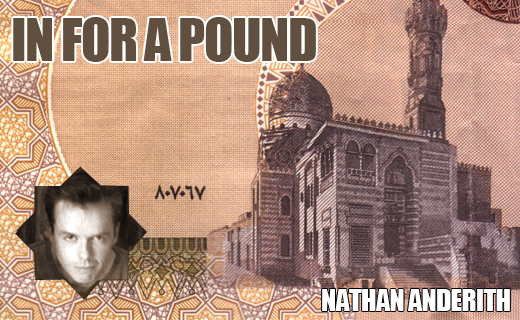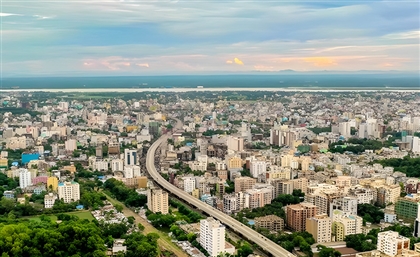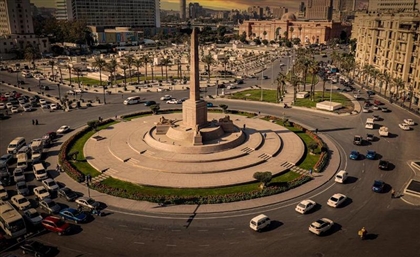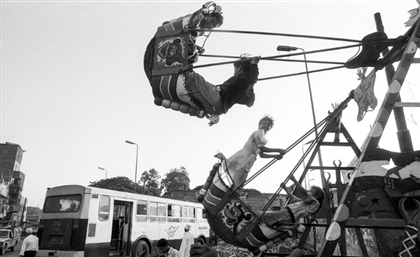The Miserable T-Shirt Miracle
The humble t-shirt has been the bane of developing countries' economies, but it's also been their saviour, as Nathan Anderith explains...

Consider the humble t-shirt. It’s comfortable, it’s casual, it’s probably got a few stains. On days you don’t need to look fancy, you pull it from your closet (or floor, let’s be honest), give it the quick sniff to see if you’re likely to knock out passing donkeys, then shrug it on and go about your day, never considering the fact that the t-shirt is the most despicable tool of degradation ever devised by man. It is also a driver of progress and enlightenment that has lifted billions out of poverty. Go figure, huh?
Well, not just the t-shirt, the entire garment industry. Since that first bitter bite of apple we’ve been coming up with countless ways to cover our hairless shame, but it wasn’t until the beginning of the Industrial Revolution that clothes really started to matter on an economic level. It was Great Britain’s early lead in textile manufacturing that pushed it to start building the massive smoke-belching factories that changed the world. T-shirts led to engines, which led to cars and airplanes, which buys a hell of a lot of tea and kidney pie.

The price for this success was high. Men, women and children worked 70-hour weeks in hot, smoky rooms, without safety regulations or worker’s rights, in conditions that most people would find fairly close to hell. They went from a world where production was based around a craft-man’s skill to one where everything was systematised and mechanised and processised, where products were made in identical batches by a giant soulless machine in which they were just cogs. They made the t-shirts of the 18th century: basic clothes that were inexpensive, low-value, and easily replaced, much like the workers themselves.
Last month we got a harsh reminder that little has changed since then, when over a thousand people died in a garment factory collapse in Bangladesh. Normally a tragedy of that scale is caused by a natural disaster or a bomb, but this building just fell down, smote by indifference; the people that were inside were less valuable to the owners than the concrete that would have kept them alive. It prompted a well-deserved international outcry, and a lot of people on this side of the tracks have been pressuring clothing companies to move their production out of Bangladesh. That would be a big, big mistake.
To understand why, imagine the garment industry as a t-shirt, a half-lucky/half-cursed t-shirt that gets passed from country to country. Whoever wears it gets sick as hell – human rights abuses, polluted air, a generation of wage slaves. But then they get better by developing their economy and establishing more advanced manufacturing. Eventually they grow out of the t-shirt and start wearing real clothes, acquiring a fashion sense and an industrial base at the same time.

Apparel is a great starter industry for a developing country because it doesn’t need much infrastructure or advanced technology, but it does need a hell of a lot of people. Those people make money – not a lot, but more than they’d make on the farm. And for the vast majority, if you walked up to them and offered to take them back to their idyllic life on the countryside, they’d tell you to go fuck yourself. A girl in one of those factories toils all day in conditions most of us would consider hellish, then takes her money on her day off and goes into the city with her friends. She gets so good at making t-shirts that they move her up to something better, and she’s able to ask for more money. When she gets married, the fact that she’s got an income will put her on a more level playing field with her husband. And their combined incomes will go to their kids’ education, in the hope that those kids’ll never have to print a Hard Rock Café logo in their lives. The economy grows up.
So the magic t-shirt started in England, then they passed it to America and parts of Europe, then they passed it to the mid-level developing countries like Mexico, Egypt and China. Insh’allah, they’ll pass it to Africa and the rest of Southeast Asia, and everybody’ll get their turn to play.
The problem with this stinky tradition is that it only works if each country hands the shirt over once they’re done with it; a stronger manufacturing economy has to stop competing in apparel for a younger entrant to have a chance. China, to no one’s surprise, doesn’t like to share. It’s got so many people that it can make computers and t-shirts, and fuck you if you’ve got a problem with it. This has left a lot of hungry people wondering when their turn will come.
Africa is the best example, of course, because if someone’s getting screwed by something, odds are they’re in Africa. They’ve been trying to establish a clothing industry for decades with almost no success. The US even tried to help them out, signing a trade agreement called AGOA that made it easy for Africa to sell its clothes to the States. But they still couldn’t compete with the river of cheap products from Asia.
(By the way, they also couldn’t compete with donated clothes from well-meaning Westerners. Next time you feel the urge to donate to a “clothe the poor” drive, please strike yourself with a blunt object until you no longer feel the urge to put local garment-makers out of business).

Bangladesh at least got the magic t-shirt; the problem’s been taking it off. They’ve been stuck at a the low-end garment manufacturing level for decades now as competition from China as well as a lack of expertise and poor infrastructure keep them from growing up. Plus, it’s just so easy to keep the same system of exploitation going – in the most crowded country in the world, you’re not going to run out of labour. The whole country’s one big Dickens’ London, full of wage slaves and evil factory owners, waiting for their chance to move forward.
But no one wears the shirt forever. China’s wages are finally starting to come up, and it’s actually importing a lot from its neighbours. Western corporations are planning to increase their sourcing from Bangladesh, while wages are expected to rise. That’s why it’s so important to stay in the game. We need to push for better conditions and safety, of course, but no one should be pulling out now, not unless we want to consign millions of women to even worse poverty and strangle a poor nation’s infant industrial revolution. Nobody likes wearing the t-shirt, but each country is a lot better off for having done so. Embrace the T.
- Previous Article I Got Banged!
- Next Article El Fusion Round II
























